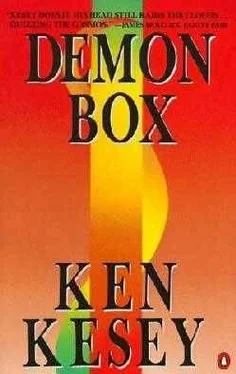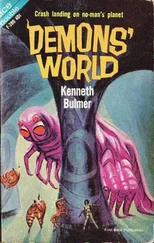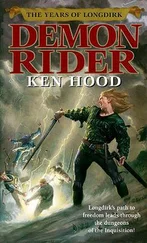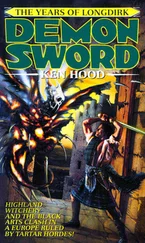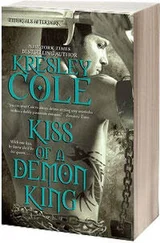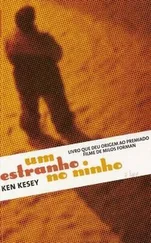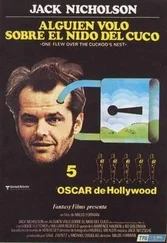Forlorn old frog; what other world could she expect with that kind of outlook? Like Papa used to say: It's all in how you hold your mouth. Oh well, I don't know. A little later I called out to her that there was a bottle of cold wine in my Frigidaire.
I filled my tub just as steaming hot as I could stand and got in. The Sounding Brass! The last and of course only other time I'd been fortunate enough to hear them was after Lena left home to marry Daniel. I got so blue that Emerson drove me back to Arkansas for a family reunion and on the way back through Colorado took me to the Sunrise Service at the Garden of the Gods where the Brass family absolutely stole the show. Afterwards Emery became the Deacon Emerson Thoreau Whittier and traveled to a lot of religious shindigs. I usually begged off accompanying him; somebody needs to keep track of the farm, I'd say. After the house burned and we moved into town I came up with other excuses. Like Emerson's driving being so uncertain that it gave me the hiccups. Which it did. But it wasn't just that, nor just cars. It's anything scurrying around, helter and yon; get here, get there; trains, buses, airplanes, what-all. Right this minute my lawyers tell me I am taking a loss of sixty-five dollars a month on my gas check simply by putting off journeying to Little Rock to sign some papers in person. But I don't know. Consider the lilies, I say, they toil not, speaking of which I hear my Frigidaire door slam as Miss Lawn got over her snit in the other room, then the lid of my cut-crystal candy dish, then my television came back on. The poor old frog. When I finally finished my rinse and come out in my robe it was still on, blaring. Miss Lawn was gone, though, as was most of the candy I'd planned to take to the kids at the farm and all the Annie Green Springs.
I recognized my ride the instant it turned the corner into the parking lot. Even eighteen stories down and before I got out the field glasses there was no mistaking it, a big bus, all glistening chrome and gleaming white and five big purple affairs painted on the side of it in the formation of a flying cross. When I got them into focus I seen they were birds, beautiful purple birds. It turned and parked in the Buses Only and opened its front door. I saw get out first what I could tell immediately was my grandson by his big shiny forehead: another trait from his grandpa's side.
Then, behind him, bobble-butting out the bus door, come that big-mouthed doughball of a character from Los Angeles by the name of Otis Kone. Otis is a kind of full-grown sissy and has always rubbed me the wrongest of any of my grandson's gang. For instance the way he stood there, looking at the Towers like he might buy it. He had on a little black beanie and around his rump he had strapped a belt with a scabbard. He pulled out a big long sword and flashed it around his head for the benefit of all. About the only good I can say about Otis is that he always goes back to Southern California as soon as our rains start in the fall, and stays there till they stop. Which is to say he stays away most of the year, praise the Lord. Watching him parade around Devlin with that sword I says to myself, Uh-huh, that's who was giving me the willies from the other end of the phone!
Then, out come this other fellow. A big fellow, draped in white from crown to toe like an Arab. Was he something! I strained through the glasses to see if I knew him but his face was all a-swirl. In fact, it seemed that he was wrapped in a kind of slow swirl. He come out of that bus and sailed about like he was moving fast and slow at the same time, pausing in midair to reach back for somebody else then swirling around again, opening like a flower as he lit down. I saw he had a little child who was also dressed in white but only in short pants and shirt with nothing over his head. It was quite apparent then that both of them were of the black race. He set the little child on his shoulder and followed Otis with his sword and my grandson with his forehead into the building, out from beneath my sight. But you could imagine it: Miss Prosper the nurse and receptionist craning over the top of her Organic Gardening, the rest of the lobby loafers looking up from their games and so on. I bet you didn't hear so much as a checker move.
I just had time to get the last clippie out of my hair before there came two quick knocks at my door, then one, then two more.
"Let me in queeck, Varooshka; they are on to us! Ve must atomize the feelm!"
It was of course that nitwit Otis. I shudder to think what would have happened had he pulled that at Mr. Firestone's door by mistake. I opened as far as the chain would let me and seen it was just a wooden stage sword painted silver. He was wearing some patched-up baggy pants and the fly not even zipped. "Sorry," I says, "I gave all my rags to the mission," and made like to slam it before I said, O I am sorry. They laughed at that.
"Happy Birthday," Devlin says, hugging me. "You remember Otis Kone?"
I took Otis's hand. "Sure." I give it a good squeeze, too. "Sure I remember Otis Kone. Otis comes up from California every summer to try and get my goat." To which Otis says, "It's not your goat I'm after, Granny," wiggling his eyebrows, then made to reach for me. I spronged his fat little fingers with a clippie, harder'n I meant. He howled and duckfooted around the hall like Groucho. I told him to get his pointed head in out of the hall before somebody called the Humane Society. He slunk past so low I had to laugh in spite of myself. He is a clown. I was about to apologize for ragging him when the third fellow glided into sight.
"Grandma, this is my longtime friend M'kehla," Devlin says, "and his son Toby."
"Mrs…?" he asks. I tell him it's Whittier and he bows and says, "It's Montgomery Keller-Brown, Mrs. Whittier. The name M'kehla was… what would you say, Dev? a phase?" Then he smiles back at me and holds out his hand. "Everyone has told me about Great-Grandma. I'm very honored."
He was even grander than through the field glasses: tall, straight-backed, and features like the grain in a polished wood, a rare hardwood, from some far-off land (though I could tell by his voice he was as country southern as I was). Most of all, though, with a set to his deep dark gaze like I never saw on another earthly being. I found myself fiddling at my collar buttons and mumbling howdy like a little girl.
"And this man-child," he says, "is called October." I let go the hand, feeling relieved, and looked to the little feller. About five years old and cute as a bug, squinting bright up at me from behind his daddy's robe. I lean down at him. "Was that when you was born, honey? October?" He don't move a hair. I'm used to how little kids first take how I look, but his daddy says, "Answer Mrs. Whittier, October." I say, "It's all right. October don't know if this ugly old woman is a good witch who's going to give him one of her taffy-babies or a bad witch gonna eat him up," and stuck my false teeth out at him. That usually gets them. He eases out of the shrouds of his daddy's robe. He didn't smile but he opened his eyes wide enough so I suddenly seen what it was made them so strangely bright.
"Toby is the name I like best," he says.
"Okay, Toby, let's get some candy before that Otis consumes it all."
We all come in and I got refreshments. The men chattered about my apartment and low-income housing before they got around to what they had come about, the Worship Fair. I let little Toby look through the field glasses while my grandson showed me a little program of what was going to be happening. I said it looked like it was going to be a real nice affair. Otis dug down into one of his big pockets and come up with a handbill of his own that said ARE YOU PREPARED? with a picture of him in a priest's outfit. He was looking up at the sky through the tube out of a roll of toilet tissue, his mouth saying in big black letters "THE CHICKENWIRE PARACHUTE IS COMING," I knew it was just more of Otis's nonsense but I folded it up, put it in my overnight bag, and told him I was always prepared. And that I notice he is, too, and reach down like to zip up his baggy old pants. He turns his back to do it himself, ears red as peppers. Somebody's got to teach these city kids, I tell Mr. Keller-Brown, and he laughs. My grandson hefts at my bag and says, "Unh, who do you usually get to carry your purse?" I told him, "Don't razz a woman about her essentials," and if he didn't think he was stout enough to handle it I bet little Toby could. The little boy put the glasses right down and came and started to lug at the purse. I says, "Aint we the good little helper, though?"
Читать дальше
